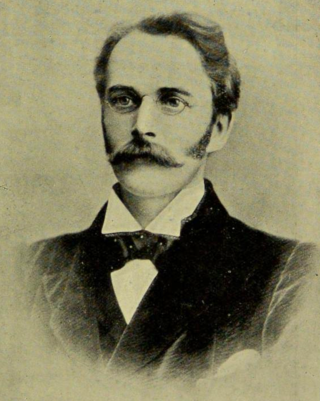Related Research Articles

Vegetarianism is the practice of abstaining from the consumption of meat. It may also include abstaining from eating all by-products of animal slaughter.

A lacto-vegetarian diet is a diet that abstains from the consumption of meat as well as eggs, while still consuming dairy products such as milk, cheese, yogurt, butter, ghee, cream, and kefir.

The Vegetarian Society of the United Kingdom is a British registered charity which was established on 30 September 1847 to promote vegetarianism.

In nutrition, diet is the sum of food consumed by a person or other organism. The word diet often implies the use of specific intake of nutrition for health or weight-management reasons. Although humans are omnivores, each culture and each person holds some food preferences or some food taboos. This may be due to personal tastes or ethical reasons. Individual dietary choices may be more or less healthy.

Andrew Linzey is an English Anglican priest, theologian, and prominent figure in Christian vegetarianism. He is a member of the Faculty of Theology at the University of Oxford, and held the world's first academic post in Ethics, Theology and Animal Welfare, the Bede Jarret Senior Research Fellowship at Blackfriars Hall.

Richard H. Schwartz is a professor emeritus of mathematics at the College of Staten Island; president emeritus of the Jewish Vegetarians of North America (JVNA); and co-founder and coordinator of the Society of Ethical and Religious Vegetarians (SERV). He is best known as a Jewish vegetarian activist and advocate for animal rights in the United States and Israel.
Christian vegetarianism is the practice of keeping to a vegetarian lifestyle for reasons connected to or derived from the Christian faith. The three primary reasons are spiritual, nutritional, and ethical. The ethical reasons may include a concern for God's creation, a concern for animal rights and welfare, or both. Likewise, Christian veganism is not using any animal products for reasons connected to or derived from the Christian faith.
Stephen H. Webb was a theologian and philosopher of religion.

The practice of vegetarianism is strongly linked with a number of religious traditions worldwide. These include religions that originated in India, such as Hinduism, Jainism, Buddhism, and Sikhism. With close to 85% of India's billion-plus population practicing these religions, India remains the country with the highest number of vegetarians in the world.

Charles Sherlock Fillmore was an American religious leader who founded Unity, a church within the New Thought movement, with his wife, Myrtle Page Fillmore, in 1889. He became known as an American mystic for his contributions to spiritual interpretations of Biblical Scripture. Fillmore promoted vegetarianism for three decades of his life.

Vegetarian and vegan dietary practices vary among countries. Differences include food standards, laws, and general cultural attitudes toward vegetarian diets.
Christian views on environmentalism vary among different Christians and Christian denominations.

The earliest records of vegetarianism as a concept and practice amongst a significant number of people are from ancient India, especially among the Hindus and Jains. Later records indicate that small groups within the ancient Greek civilizations in southern Italy and Greece also adopted some dietary habits similar to vegetarianism. In both instances, the diet was closely connected with the idea of nonviolence toward animals, and was promoted by religious groups and philosophers.

Janet Regina Hyland, also known as "J. R. Hyland", was an American non-fiction and philosophical author.

Diet in Hinduism signifies the diverse traditions found across the Indian subcontinent. Hindu scriptures promote a vegetarian dietary ideal based on the concept of ahimsa—non-violence and compassion towards all beings. According to a Pew Research Center survey, 44% of Hindus say they are vegetarian.

Vegetarianism in the Romantic Era refers to the rise of vegetarianism associated with the Romanticism movement in Western Europe from the eighteenth to the nineteenth century. Many of the late Romantics argued in favor of a more natural diet which excluded animal flesh for a plethora of reasons including the state of human and animal health, religious beliefs, economy and class division, animal rights, literary influence, as well as from new ideas about anthropology, consumerism, and evolution. The modern vegetarian and vegan movements borrow some of the same principles from the late Romantics to promote the adoption of diets free from animal products.

Lacto-ovo vegetarianism or ovo-lacto vegetarianism is a type of vegetarianism which forbids animal flesh but allows the consumption of animal products such as dairy and eggs. Unlike pescetarianism, it does not include fish or other seafood. A typical ovo-lacto vegetarian diet may include fruits, vegetables, grains, legumes, meat substitutes, nuts, seeds, soy, cheese, milk, yogurt and eggs.
Jewish vegetarianism is a commitment to vegetarianism that is connected to Judaism, Jewish ethics or Jewish identity. Jewish vegetarians often cite Jewish principles regarding animal welfare, environmental ethics, moral character, and health as reasons for adopting a vegetarian or vegan diet.

The relationship between Christianity and animal rights is complex, with different Christian communities coming to different conclusions about the status of animals. The topic is closely related to, but broader than, the practices of Christian vegetarians and the various Christian environmentalist movements.

Sidney Hartnoll Beard was an English fruitarian, vegetarian activist and writer. He was President of the international animal rights society, the Order of the Golden Age.
References
- ↑ Kris Hiuser (2010). "To Kill A Mockingbird? : A Theology of Animals and a Christian Response". Open Access Dissertations and Theses (Paper 5345). pp. 13–14.
- 1 2 "Food and Faith: Vegetarianism in religion". Spezzatino. 2. 6: 106–108.
Christian Vegetarian Association
- ↑ Aren Roukema. Toward a vegetarian Christendom.
- ↑ "¿Qué comería Jesús… hoy?" (PDF). Archived from the original (PDF) on 28 November 2011. Retrieved 17 October 2010.
- ↑ Honoring God's Creation